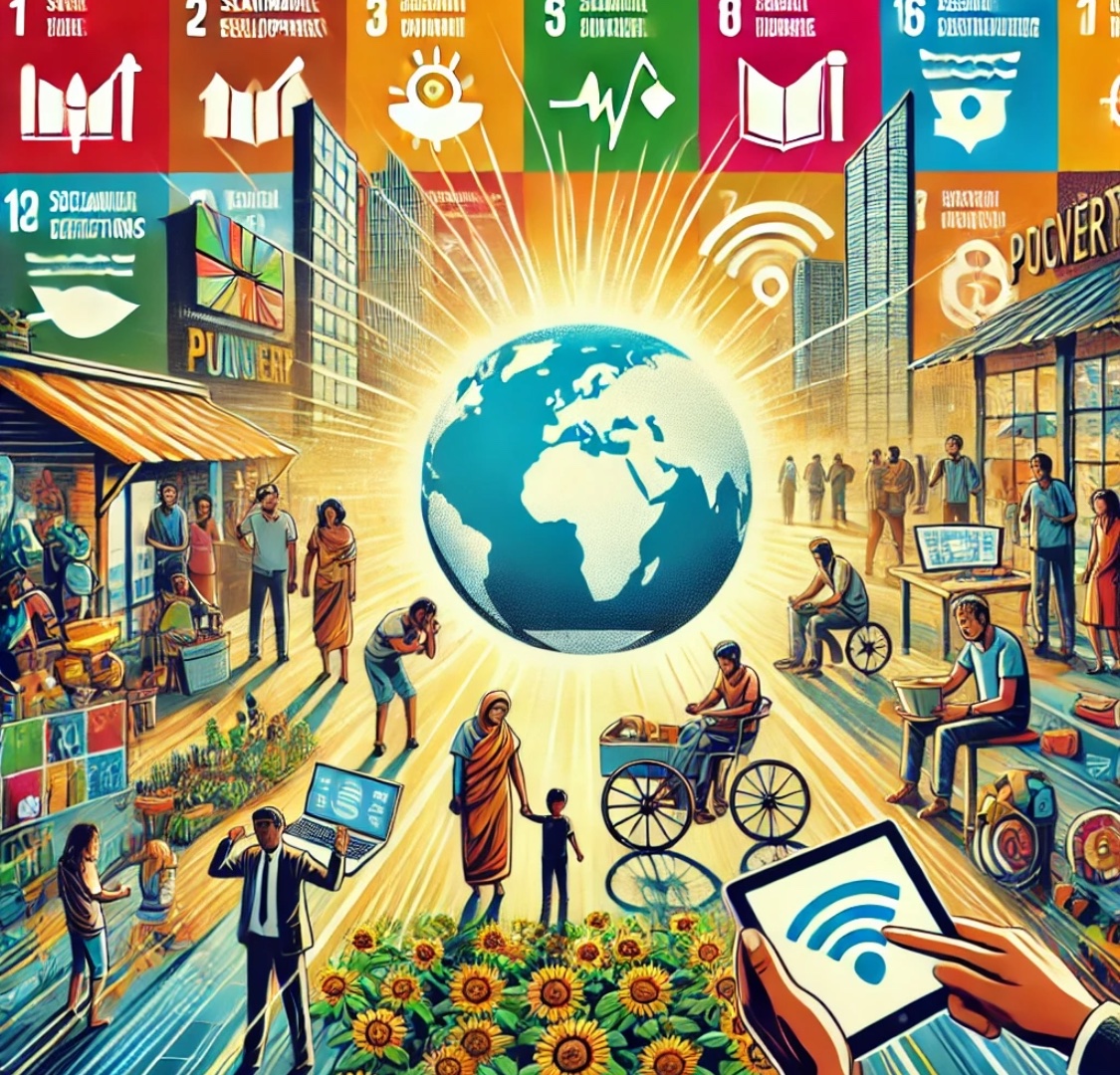The United Nations Sustainable Development Goals (SDGs) serve as a global blueprint to end poverty, protect the planet, and ensure peace and prosperity for all by 2030. At Iconet, we are passionate about leveraging technology and innovation to make a tangible impact on these goals. Here’s how Iconet consultants contribute to each SDG by crafting business cases, developing strategic roadmaps, and implementing cutting-edge solutions in cloud computing, IoT, and AI:
1. No Poverty
Goal: Eradicate poverty in all its forms.
Business cases are developed to enable clients to deliver cloud-based financial tools for underserved communities.
Data analytics is utilized to help NGOs and financial institutions optimize resource allocation.
Scalable cloud and IoT architectures are designed to ensure financial solutions are accessible to all.
2. Zero Hunger
Goal: Eliminate hunger and ensure food security.
Business cases are created for IoT-driven agriculture solutions to enhance crop yields.
AI-powered supply chain models are recommended to address food shortages.
IoT and AI systems are implemented to boost agricultural efficiency and sustainability.
3. Good Health and Well-being
Goal: Promote healthy lives and well-being for all.
AI-driven healthcare analytics are proposed to improve patient outcomes.
Strategies are developed for personalized wellness programs using technology.
Secure, cloud-based systems are designed for efficient healthcare data management.
4. Quality Education
Goal: Ensure inclusive, equitable, and quality education.
Robust cloud infrastructures are built for e-learning platforms.
AI-powered personalized learning tools are developed for educational institutions.
Scalable cloud architectures are implemented to extend the reach of educational technologies.
5. Gender Equality
Goal: Achieve gender equality and empower women and girls.
Diversity and inclusion initiatives are advocated within client organizations.
Business models are designed to support women in STEM programs.
Data-driven insights are used to address gender equity gaps in various industries.
6. Clean Water and Sanitation
Goal: Ensure sustainable water management.
Business cases are developed for IoT-based smart water management systems.
Data-driven solutions are provided to enhance access to clean water resources.
IoT frameworks are deployed to monitor and optimize water usage.
7. Affordable and Clean Energy
Goal: Ensure access to sustainable and modern energy for all.
AI-driven solutions are recommended to optimize renewable energy systems.
Clients are assisted in transitioning to sustainable energy practices.
IoT systems are designed to enhance energy efficiency and monitoring.
8. Decent Work and Economic Growth
Goal: Foster inclusive economic growth.
Scalable technology solutions tailored to small businesses are created.
Strategies for digital transformation are delivered to stimulate economic development.
Cloud computing is utilized to support innovation and entrepreneurship.
9. Industry, Innovation, and Infrastructure
Goal: Build resilient infrastructure and foster innovation.
Cloud platforms are proposed to drive digital innovation.
IoT and AI strategies are designed to build robust, resilient infrastructures.
Advanced IoT and cloud architectures are implemented to fuel industrial growth.
10. Reduced Inequalities
Goal: Reduce inequalities within and among countries.
Data analytics are leveraged to address systemic inequalities in business cases.
Equitable technology access is supported in client projects.
Cloud and IoT solutions are developed to create opportunities for underserved communities.
11. Sustainable Cities and Communities
Goal: Create inclusive, safe, and sustainable cities.
IoT-driven solutions are designed for smarter urban planning.
Data-informed tools are recommended for municipal decision-making.
IoT and cloud systems are implemented to support sustainable urban infrastructure.
12. Responsible Consumption and Production
Goal: Ensure sustainable production and consumption patterns.
Business models are crafted to help clients track and reduce their carbon footprint.
Sustainable practices are promoted through data-driven insights.
AI-powered solutions are implemented to improve resource efficiency.
13. Climate Action
Goal: Combat climate change and its impacts.
Predictive models are delivered to mitigate climate risks.
Business cases focused on carbon reduction initiatives are developed.
IoT and AI architectures are designed for climate monitoring and management.
14. Life Below Water
Goal: Conserve and sustainably use ocean resources.
AI-driven monitoring solutions are proposed for marine ecosystems.
Sustainable fishing practices are supported through IoT strategies.
IoT systems are deployed to protect and monitor marine biodiversity.
15. Life on Land
Goal: Protect terrestrial ecosystems and halt biodiversity loss.
IoT and data analytics solutions are designed for conservation efforts.
Organizations are partnered with to mitigate deforestation.
IoT frameworks are implemented to safeguard biodiversity.
16. Peace, Justice, and Strong Institutions
Goal: Promote peaceful and inclusive societies.
Blockchain technologies are recommended to enhance governance transparency.
Data analytics are used to identify and address systemic injustices.
Cloud platforms are built to strengthen institutional frameworks.
17. Partnerships for the Goals
Goal: Strengthen global partnerships for sustainable development.
International organizations are collaborated with to design technology-enabled partnerships.
Expertise is provided to reinforce global implementation efforts.
IoT and AI are leveraged to support cross-sector collaborations.
At Iconet, we are dedicated to using technology and innovation as a force for good. By aligning consulting efforts with the SDGs, transformative change can be driven to contribute to a more sustainable and equitable world.



Leave a Reply